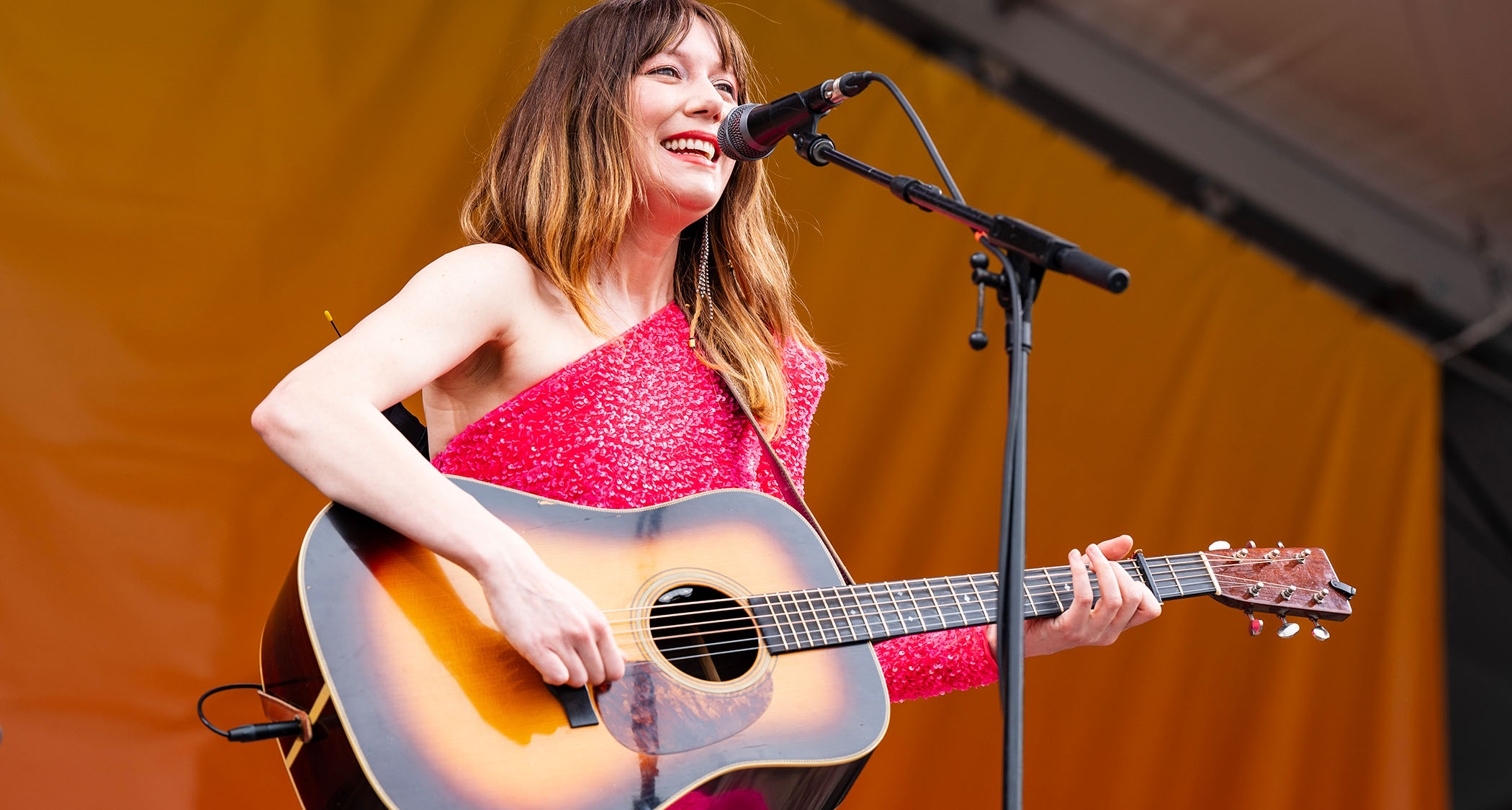Tom Morello: "Guitar playing has a different emphasis now – young people want to be producers before musicians"
The Rage Against the Machine six-stringer and political activist talks the current landscape of guitardom, and his new Audible release, Tom Morello at Minetta Lane Theatre: Speaking Truth To Power Through Stories And Song
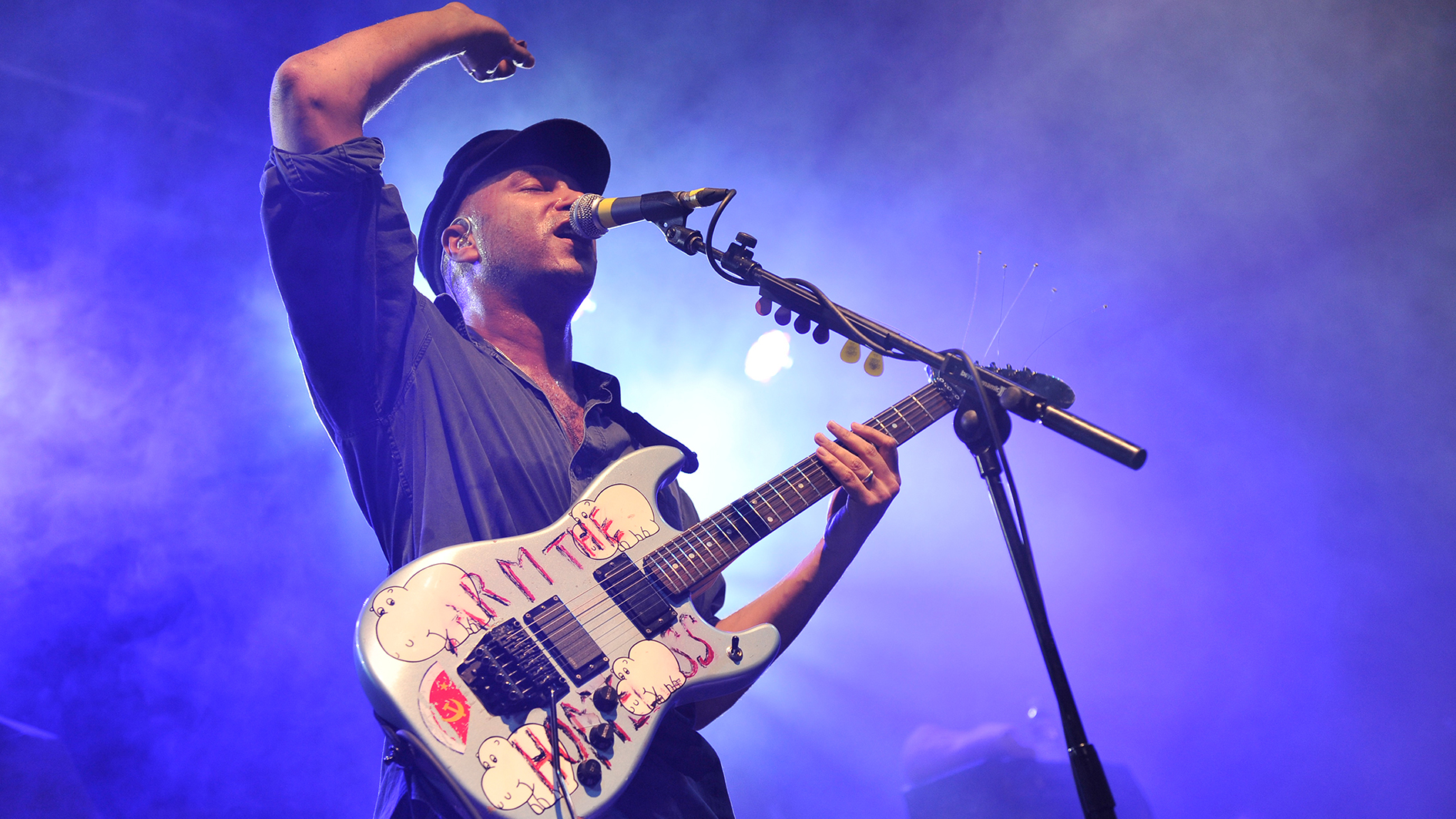
"I came well prepared for my off-Broadway debut,” grins Tom Morello, when asked if there were any pre-show nerves before his three nights at the Minetta Lane Theatre last September.
Part spoken-word and part music, the shows offered a remarkable insight into his journey as one of the most important guitarists to emerge in the '90s, delving deep into the noises and activism he’s been associated with over the last three decades.
Released August 31, Tom Morello at Minetta Lane Theatre: Speaking Truth To Power Through Stories And Song will be undoubtedly prove popular among fans of the Rage Against The Machine guitarist - who, let’s not forget, has also been productive in other projects including Audioslave, Bruce Springsteen And The E Street Band, The Nightwatchman and more...
“The show documented in the Audible release is a combination of shredding guitar and a lifetime of anecdotal stories,” continues Tom. “It’s about how I got shredding on guitar and why I bothered to begin with.
"Speaking to an audience and telling tales is something I’ve been doing around campfires for decades now, so there was some familiarity in that regard. And then when it came to plugging in and ripping some solos, that was something I was pretty comfortable with, too...
“It weaves a lifetime of music in there, reliving experiences from when [Tool guitarist] Adam Jones and I were in a high school band together - to the acoustic song Garden Of Gethsemane that I wrote for Chris Cornell, to the thundering EDM-flavored rock of The Atlas Underground. The show follows a path in music and activism... the patchwork quilt of what has been my career.”
There’s some really insightful guitar wisdom in there - some of our favorite quotes including “make a mistake, repeat it 16 times, make it the cornerstone of the song” and you explaining how every inch of the guitar became fair game for creating sound and texture...
Get The Pick Newsletter
All the latest guitar news, interviews, lessons, reviews, deals and more, direct to your inbox!
“Over the course of the last few years, whether it was from doing the MasterClass or the photo-pictorial book coming out soon or my first signature Soul Power guitar with Fender, I’ve been exploring ways to be present and create new music while also sharing some of the wit and wisdom from the years.
"Having spent a lot of time with friends in bands and managers in the music industry, people have always said ‘Tom Morello can sure spin a yarn!’ A big part of my solo show is speaking to an audience and connecting in a way that goes beyond just playing music.
There’s a human connection from the tragedy, triumph and comedic terror that comes with a lifetime of rock ’n’ roll
"There’s a human connection from the tragedy, triumph and comedic terror that comes with a lifetime of rock ’n’ roll. It felt like a great way to connect with fans during this time.”
One sneaky fan managed to film some of it and stick it on YouTube - from what we’ve seen you brought your Arm The Homeless electric guitar, your favored Marshall amp and cab and a nylon string for the performance element...
“Yeah, very sneaky! On my four Nightwatchman records of folky Americana, I’ve always used nylon-strings. That one goes back to my apartment in the early '90s, when I couldn’t annoy the neighbors any more after writing those RATM riffs on a cranked Marshall.
"I’ve gotten very accustomed to riff writing on acoustic. And then when I began the coffee house circuit so to speak, in my later-life career as a singer-songwriter, that was always the guitar I felt most comfortable with. I think it’s an Ibanez something or other. It gives a slightly different take on the Woody Guthrie style of folk strumming.”
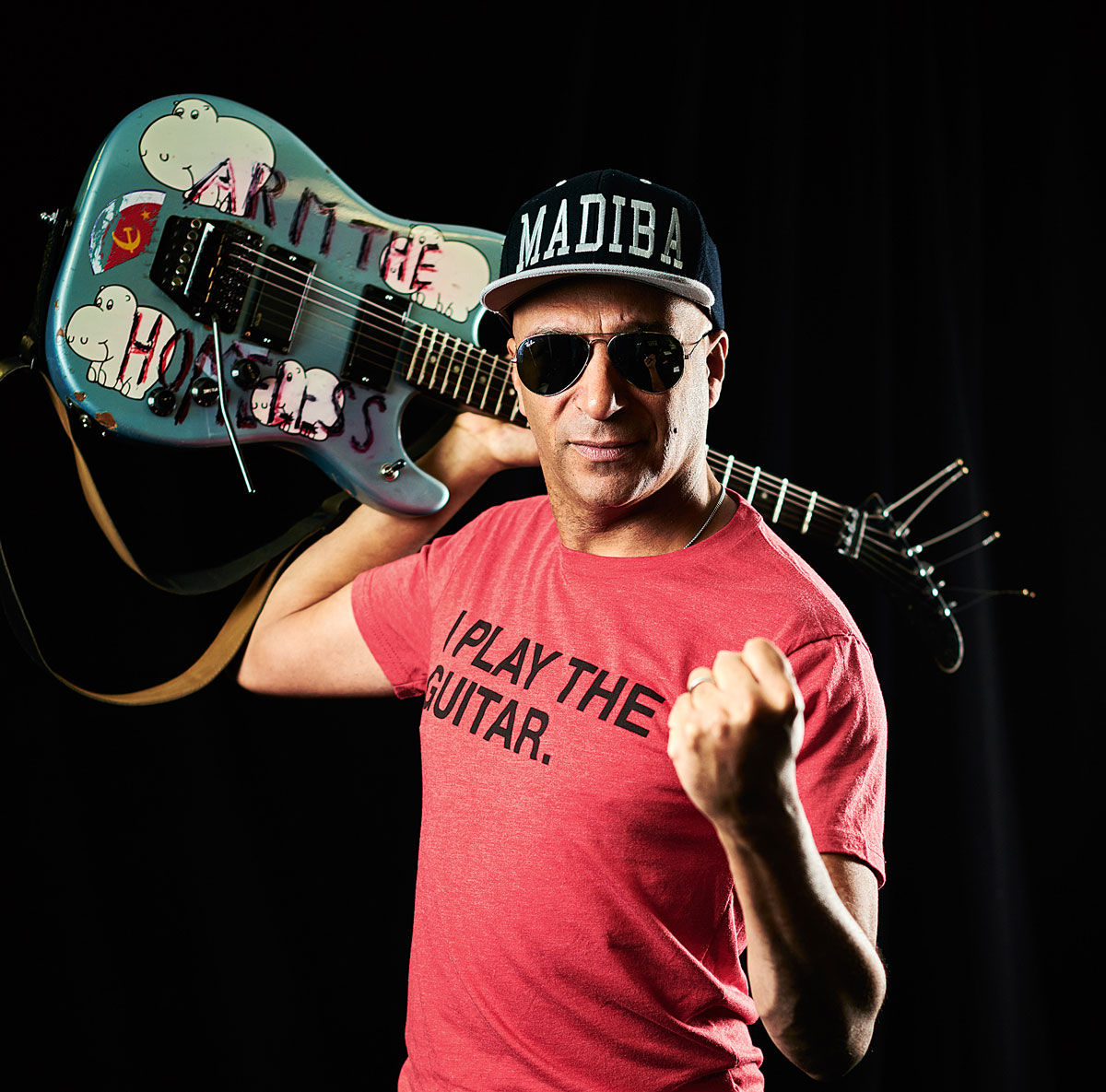
And while we’re on the subject of gear, a lot of people were surprised to hear you had used a Les Paul for overdubs on Killing In The Name, Freedom, Township Rebellion and more...
“Yeah, I think I put that on my Instagram. During the first three months or so of this lockdown, it felt like the driest creative period of my adult life. From the time I was 17 to the beginning of the COVID lockdown, I’ve had a creative motor in me that would not stop.
"And then I came to a dead stop at the beginning of this [pandemic], I’m not sure why. About three months in, I began playing a lot and recording remotely with friends again - I put out that song Stand Up with Dan Reynolds from Imagine Dragons, Shea Diamond and The Bloody Beetroots.
"I put out an acoustic song, You Belong To Me. I’ve been working pretty tirelessly on a new body of work to maintain my sanity and maintain my connection with an audience during these troubled times.”
Back to that Les Paul, though, we love the fact you bought it from West LA Music in 1992 because it was the same color as Taco Bell hot sauce...
“Yeah it was [laughs]! That was a staple of the diet at the time. I have a few guitars but I’m not a guitar collector with a capital C. If a guitar speaks to me, then I’ll keep it and that Les Paul did... so featured in a lot of major jams over the years.
"I haven’t changed anything on it. I don’t really do that sort of thing. It is what it is, and wasn’t particularly expensive, so let’s just go with the sound it already has. I look at the guitar as not so much a tool as it is a collaborator.
"It brings its own personal chemistry into that creative relationship, whether it’s a $40 pawn shop guitar or something you chose because it was the color of hot sauce, you plug it in and see how it sounds. You let that be the North Star that guides your creativity on that particular day.”
On the Audible recording, you don’t waste much time before introducing some pretty ambitious Whammy screams. The late, great Dimebag Darrell once described the sound to us as stepping on a cat...
If a guitar speaks to me, then I’ll keep it, and that Les Paul did...
“That’s exactly what it is… when done correctly [laughs]! It takes intense years of practice to get the right kind of cat, though. I was looking for some kind of alley/tabby mix right there and that’s what you get. It’s all in the nuance of how the cat screams! I only use one version of the Whammy – the original is the only one in my arsenal, so I don’t know about the other models.”
Well, you’ve been very loyal to your main rig over the years. But is there anything new you’ve tried and been impressed by?
“The market is not something I follow closely, but I’m actually stood in my studio right now, looking at stuff that I have been fiddling with on newer recordings. One is the little Electro-Harmonix POG [octaver] pedal, the tiny one [most likely Nano or Micro – Ed]. It tracks pretty great for when you are riff-writing on the sixth string - you kick it in and suddenly it sounds like you have three or four distorted basses playing at the same time as you.
"There’s also this thing called a Data Corrupter [made by EarthQuaker Devices], which is in some ways this errant Morellian solo gone off the rails kind of thing. You just step on it. I have no idea how to use it – I just twist all the buttons around randomly and all hell breaks loose. All you have to do is just hope that you are recording!”
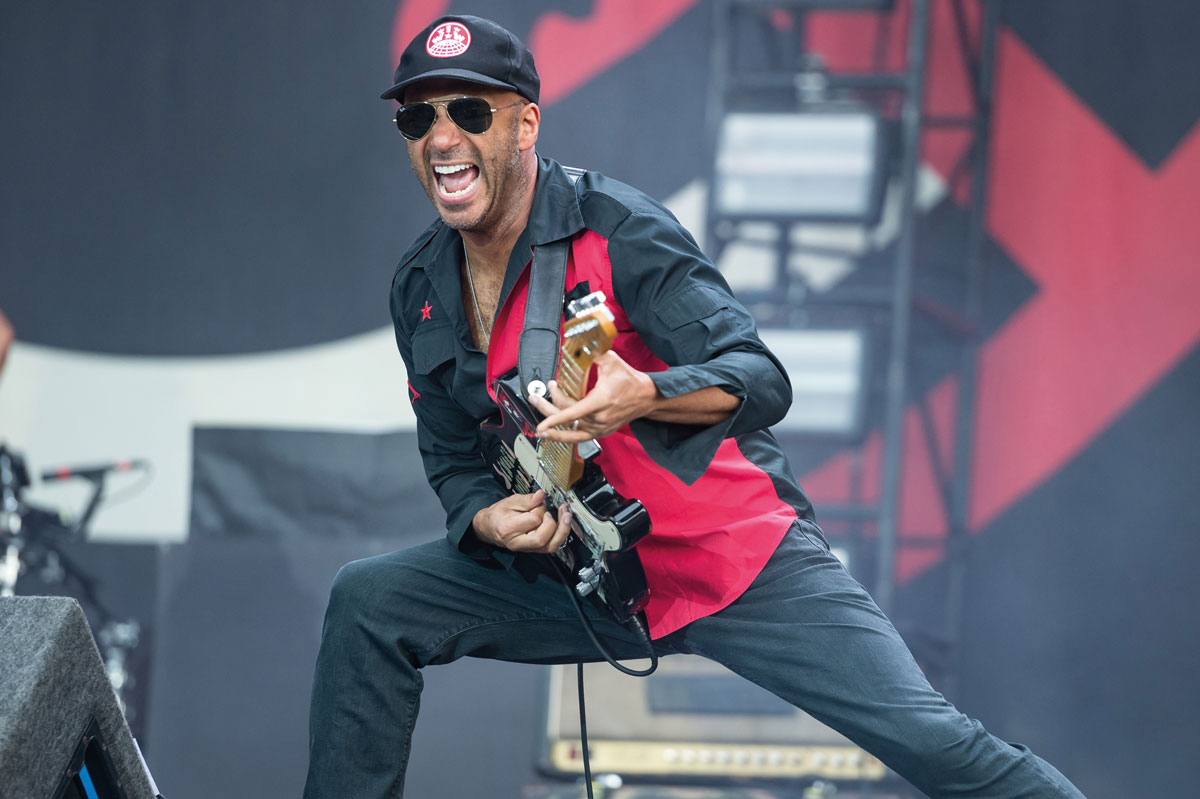
You once told us you spent eight hours a day as a teenager trying to play like Randy Rhoads on Mr. Crowley. You’ve guested with him live before but it must have been pretty mind-blowing to guest on two tracks on his new album – namely Scary Little Green Men and It’s A Raid?
“I’ve had the good fortune of sharing the stage with Ozzy a few times. I actually got to play Mr. Crowley with him, which was incredible. Of course, it was an honor to rock with The Prince Of Darkness again.
"As for what I contributed on those songs, I went down there and they had some tracks going. I’m trying to remember the order of it all because it was recorded some time ago. I really loved the sound that was coming out of the speakers and the fellow who was producing the record was a young guy [Andrew Watt] but a genuine Ozzy and Black Sabbath fan. He was steering the whole project to the things us Ozzy and Sabbath fans love, and I was happy to participate in that.”
Usually the only knob they let me touch in the studio is the volume knob
You’re a very schooled player - having spoken of your admiration for Allan Holdsworth and Al Di Meola in the past. Are there any new techniques or exercises you've been working on over lockdown?
“Rest in peace, Allan Holdsworth! There are two new things I’ve been working on to expand my creative life during lockdown. One is recording... I have a studio at my home but I am not an engineer.
"I have a 96 year-old mom who lives on the premises, so we’re super-locked down here. Nobody comes in and nobody comes out. Usually the only knob they let me touch in the studio is the volume knob. So I’ve been recording all my new guitar parts on my iPhone. I just hold it up to the amp. It makes me think I’ve wasted money on mics, because it sounds pretty fucking good...”
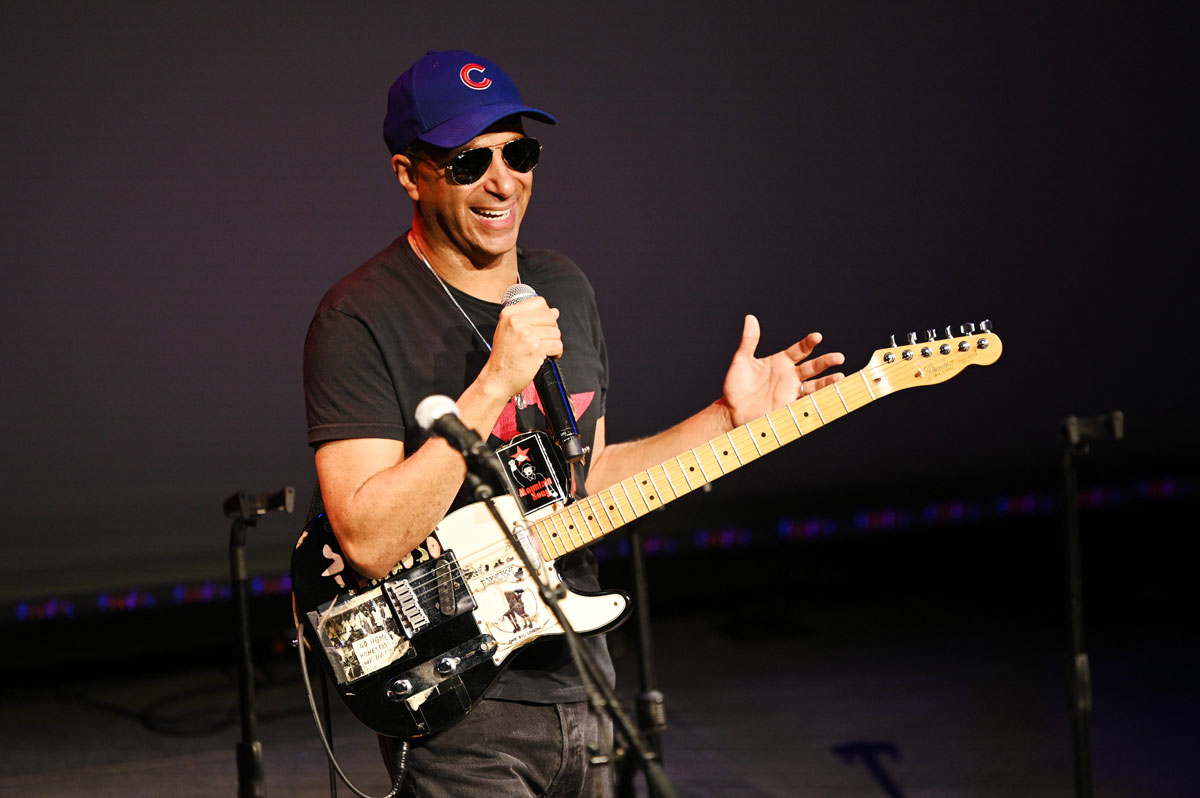
And what’s the other?
“I’ve also been playing a lot with my nine year-old, who is an aspiring guitarist who loves Led Zeppelin. So I’ve been really learning those songs to teach them to him. I know the riffs and I’ve jammed a few of them in different bands, but I’ve really been immersing myself in the subtleties of Jimmy Page’s playing. It’s been very eye-opening and has made me want to incorporate some of that into my own playing.
"We’ve been learning a lot of the voicings and stuff from The Song Remains The Same record where he’s covering multiple guitar parts while weaving his way through the songs. I found it really interesting.
"E Street Band notwithstanding, I’ve always been the only guitar player in a band. So it’s been good to see how he breaks down these often-complicated interlocking parts and makes a powerful and compelling single guitar performance out of them. We’ve been doing that a lot. The live versions of Stairway and Whole Lotta love on that are masterclasses for that style.”
There’s such a wealth of young talent out there - it must have been really exciting to see Nandi Bushell’s cover of Cochise with the Soul Power signature you sent her...
There are players who recognize the purity and authenticity of holding a guitar in your hands, stepping on the distortion pedal and just rocking the fuck out
“That’s true. I think there’s a very different emphasis on guitar playing nowadays compared to when I was coming up. A lot of young people’s first inclination is to be a producer before a musician - you can make [The Beatles'] The White Album on your phone now.
"Those who play guitar look at it as part of their compositional arsenal, as opposed to the eight hours a day shredding. But then there are those, like Nandi and others, who recognize the purity and authenticity of holding a guitar in your hands, stepping on the distortion pedal and just rocking the fuck out. There’s nothing like it in the world.
"I’ve been keeping that banner alive but thank goodness for these younger players. That’s one of the reasons why I did the Audible thing or MasterClasses or released the Soul Power guitar...”
Well, it’s hard to imagine what your life would have been like if you hadn’t picked up the guitar...
“Exactly. The guitar really matters to me. It’s such an important instrument on the face of the planet but to me personally [as well]. While guitar music may not be choking the top of the charts as it once did, it is no less great or important than it’s ever been.
"Like you said, Nandi already has been putting that guitar to use. Her cover of Cochise blew my mind! One of the stories I relate in the Audible thing is the whole battle of the bands thing where we might not have been the best musicians on stage, but we were inhabited by the holy spirit of rock ’n’ roll.
"When I left off the rise and the roof came off, I could feel the power of rock coursing and channelling through me. It was my revelatory moment, when I knew this is what I wanted to do. It’s certainly the same with Nandi. It’s not like she just plays the songs well... it’s more than that. The holy spirit is still there in people of all ages!”
Tom Morello at Minetta Lane Theatre: Speaking Truth to Power Through Stories and Song is available now on Audible.
Amit has been writing for titles like Total Guitar, MusicRadar and Guitar World for over a decade and counts Richie Kotzen, Guthrie Govan and Jeff Beck among his primary influences as a guitar player. He's worked for magazines like Kerrang!, Metal Hammer, Classic Rock, Prog, Record Collector, Planet Rock, Rhythm and Bass Player, as well as newspapers like Metro and The Independent, interviewing everyone from Ozzy Osbourne and Lemmy to Slash and Jimmy Page, and once even traded solos with a member of Slayer on a track released internationally. As a session guitarist, he's played alongside members of Judas Priest and Uriah Heep in London ensemble Metalworks, as well as handled lead guitars for legends like Glen Matlock (Sex Pistols, The Faces) and Stu Hamm (Steve Vai, Joe Satriani, G3).
“Around Vulgar, he would get frustrated with me because I couldn’t keep up with what he was doing, guitar-wise – Dime was so far beyond me musically”: Pantera producer Terry Date on how he captured Dimebag Darrell’s lightning in a bottle in the studio
“He ran home and came back with a grocery sack full of old, rusty pedals he had lying around his mom’s house”: Terry Date recalls Dimebag Darrell’s unconventional approach to tone in the studio






![John Mayer and Bob Weir [left] of Dead & Company photographed against a grey background. Mayer wears a blue overshirt and has his signature Silver Sky on his shoulder. Weir wears grey and a bolo tie.](https://cdn.mos.cms.futurecdn.net/C6niSAybzVCHoYcpJ8ZZgE.jpg)

![A black-and-white action shot of Sergeant Thunderhoof perform live: [from left] Mark Sayer, Dan Flitcroft, Jim Camp and Josh Gallop](https://cdn.mos.cms.futurecdn.net/am3UhJbsxAE239XRRZ8zC8.jpg)





